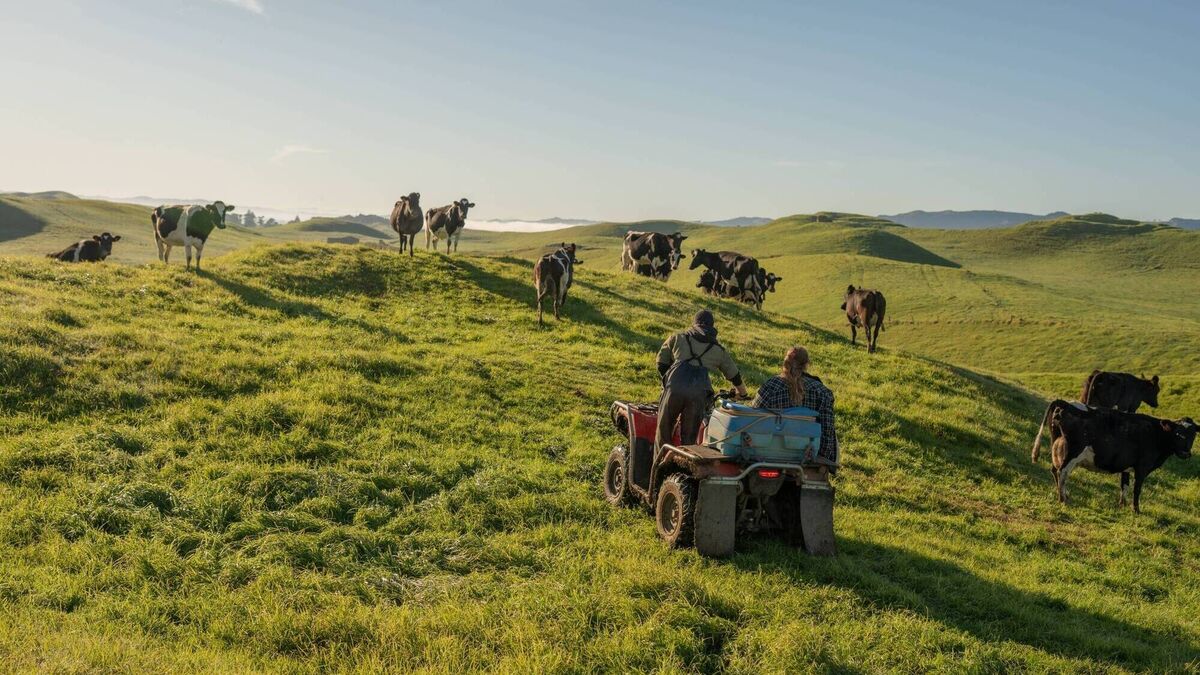Within the next 10 years, New Zealand agriculture will need to manage its largest-ever intergenerational transfer of wealth, conservatively valued at $150 billion in farming assets.
That's according to the new 'Changing of the guard' white paper by agribusiness banking specialist Rabobank.
It reveals that over this time, approximately 17,320 New Zealand farm and orchard growers - more than half the country's total - will reach the age of 65.
Rabobank New Zealand chief executive Todd Charteris says the findings highlight the extent of the succession challenge ahead for the agricultural sector.
"Succession is a moment in time - it's a process that takes years of planning, conversation and adaptation.
"The traditional model of passing the farm to the next generation is under pressure, but there are new and innovative models emerging that can help families stay connected to their land."
The fourth in a series exploring the opportunities and challenges faced by New Zealand's primary industry, this paper covered the emotional, environmental and economic aspects of farm succession including the risks of generational disconnect and the realities of servicing debt.
Rabobank commissioned the University of Waikato School of Economics to review official statistics as part of the development of the paper alongside its own desktop research and case study interviews.
Data collected found only one in three farmers have a formal succession plan in place, with 17% having discussed succession with relevant parties but nothing documented. Fifty per cent had not discussed succession at all.
While one-third of farmers intended to pass their farm to their children, 39% reported having no children seriously interested in farming.
"For many Kiwi farmers, the dream is that one of the kids will take over the farm," Charteris said. "The flipside is that it can be experienced as a feeling of pressure by the next generation.
"Taking over the family farm involves committing to decades of indebtedness in a sector that is subject to volatility and uncertain returns - a big call for a 20-something and their bank."
While this is the case, collected data suggests the financial obstacles to farm ownership have plateaued in recent years, with total package values for farm employees keeping pace with the increase in land valuations over the 2011-24 period.
However, Charteris said challenges remain high, particularly with the increased scale of farming and the need to increase margins to support borrowing.
The paper highlighted several increasingly prominent succession models, including hybrid ownership models.
Dragging the Chain
Todd Charteris says several of New Zealand's largest scale, most productive and environmentally responsible farming businesses are either fully corporate or run under Māori-owned incorporation models, with an increasing number of farms also being set up as hybrid models.
"We're committed to adapting our systems and products to support these new realities. There are some innovative solutions offering up promising ideas, not to disrupt the system but rather to enhance it.
"If we get this right, we can unlock new pathways for young Kiwis who are passionate about farming to own a share of a greater pie."
Charteris said most farmers spoken to in the process of compiling the white paper had been looking at succession for years, and all of them wish they'd started the process earlier.
"It's no surprise some people drag the chain when it comes to succession on the family farm or orchard. At the end of another month of another changing season, it's tempting to leave the succession conversation where it sits most comfortably - in the too-hard basket.
"Delay becomes a problem in that the more time passes, the more succession options become restricted, further exacerbating stresses and difficulties in the family."
Source - https://www.ruralnewsgroup.co.nz













